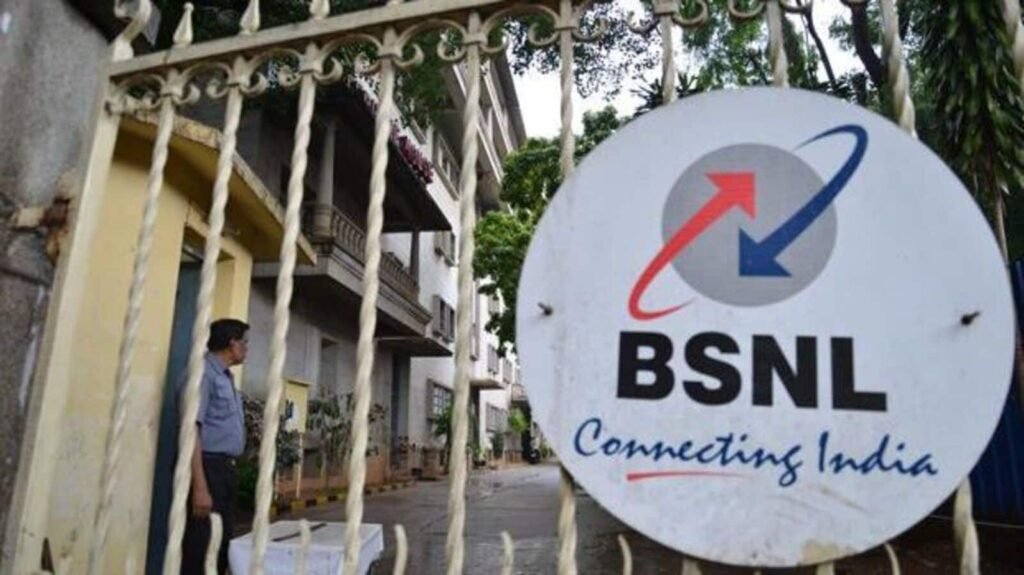BSNL 4G deployment to be completed by end-FY25: Ex-TCS COO

Alongside the 4G deployment, the company’s network equipment trials with Vodafone-Idea are also set to successfully conclude by the end of this month, said N. Ganapathy Subramaniam, advisor for telecom strategic initiatives at Tata Consultancy Services (TCS) and chairman of the board of directors at Tejas Networks.
“The technology is now fully tested and ready. We’ve already operationalized four zonal high-capacity telecom data centres, and each of these four have backup geographical dependency data centres. On top of these 32, there are 32 more edge data centres in 32 circles, and eight back-end production data centres. The network core built by Centre for Development of Telematics (C-DOT) is also operational. We’ll deploy 100,000 towers in total, and 59,000 towers (including radio, antenna, microwave and more) are commissioned already—of which 49,000 have been installed. Each day, we operationalize 500 more,” Subramaniam said.
At the current pace, Tejas, along with TCS, expects to deploy 75,000 network sites, or towers, by the end of this year. By the end of this fiscal, the full network will be deployed and ready for customer-end operations, he said.
“Some of the backlog in the network deployment process is happening because some of the sites are really remote—which is challenging because of various factors such as availability of power and other infrastructure issues. But otherwise, our network is almost ready,” he said.
In May 2023, TCS won the $1.83-billion contract from BSNL for its network deployment. The same is now expected to be completed within two years, and marks one of the largest telecommunications contracts in the world.
Indigenisation of telecom infra
Tejas’ indigenization of the telecom infrastructure stack has received considerable impetus from the Centre, too. Earlier this month, Union telecom minister Jyotiraditya Scindia underlined the technology stack developed by C-DOT and Tejas Networks as one of the Centre’s achievements in the first 100 days of governance.
“Such feats will take us to greater heights of supply chain independence and global leadership in the years to come,” the minister had said.
To enable integration with existing network infrastructure in BSNL’s operations, Subramaniam said that Tejas’ infrastructure stack is compatible with the current infrastructure leaders such as Finland’s Nokia, Sweden’s Ericsson and the US’ Cisco Systems, among others.
“Alongside cross-vendor support, we’ve built one integrated tower for the entire network instead of two separate ones for consumer and enterprise networks. This will reduce infrastructure duplication, and significantly reduce capex. The indigenization push is not just about geopolitics—at some point, we had to build our own tech stack instead of waiting for global vendors. Plus, this represents a significant import bill reduction opportunity for us,” Subramaniam added.
Export potential
Industry stakeholders agreed. Peeyush Vaish, partner and leader for telecom at consultancy firm Deloitte, said, “In the long run, Tejas can export telecom infrastructure out of India, and component localization will also commence. Whenever the next generation of network comes along, the likes of Nokia and Ericsson may be swapped out for indigenous telecom infrastructure—which is what Tejas is building for right now.”
Labelling Tejas Networks’ move as “a long-term play,” Vaish added that even as competition for indigenized telecom infrastructure grows, so will demand.
A senior industry official who also consults with numerous telcos and infrastructure providers stated that beyond the equipment and technology, concerns for Tejas would remain around enterprise telecom investments in the long run. “There’s no doubt that indigenized telecom infrastructure is crucial. But, what’s concerning is that returns on enterprise 5G investments have been very weak—in its face, expecting further billion-dollar outlays within six-odd years from telcos and other enterprises would be impractical. This could be the only major concern for Tejas right now,” the official said.
Ease of updating to 6G
Subramaniam, however, said that the company is cognizant of the concerns. “There are some gaps between enterprise 5G investments and returns, which is why our idea behind building out the infrastructure hardware is that when 6G comes along, all it should need are software-driven updates. That would be built as our own engineering, and would be the core business offering from us—instead of us relying on hardware upgrades amid low business returns. This would represent a win-win for all,” he added.
The executive, who was associated with TCS since 1982, also added that beyond BSNL, the infrastructure provider is almost set to conclude network trials with private operator Vodafone-Idea.
“The wireline deployment is coming along, while additional tests for wireless networks are also going on. We’re confident of getting its business. In 30 days, the trial should come to an end, beyond which we expect to get some of Vodafone-Idea’s business. It’s important to understand that what works for BSNL may not work for Vodafone-Idea, which is why we have completely separate infrastructure in many cases in the Vi trial,” he said.








